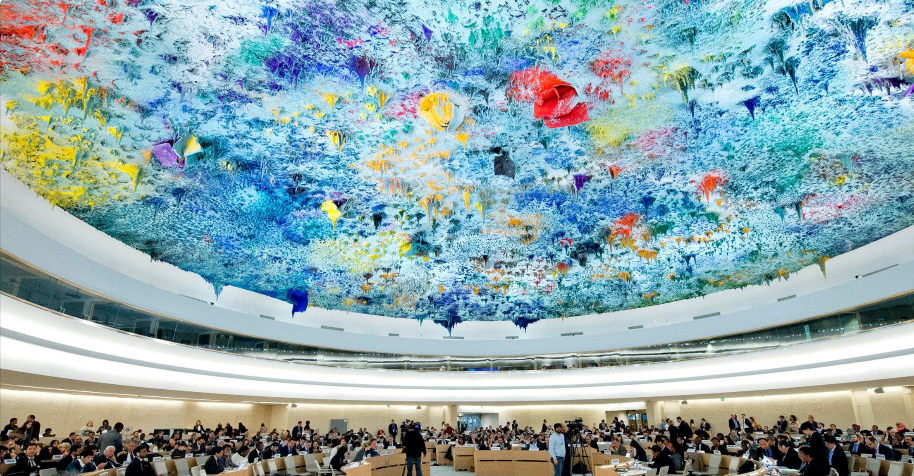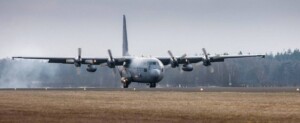Diverse Sudanese representation at UN Human Rights Council 55th session

UN Human Rights Council in Geneva, Switzerland (Photo: OHCHR)
The opening of the 55th session of the United Nations Human Rights Council (OHCHR) kicked off in Geneva yesterday morning with speeches by several dignitaries. The session, which includes a one-hour meeting on Sudan on March 1, will run for 40 days and conclude on April 5.
“The pain and the slaughter of so many people in the Middle East, Ukraine, Sudan, Myanmar, Haiti and so many other places around the world are unbearable,” said UN High Commissioner for Human Rights Volker Türk in his opening speech.
The speech, which gave an overview of conflicts around the world and the OHCHR’s new human rights solutions, ended with a reminder of the function of international human rights organisations. “All victims are equally deserving of justice. No one can be left behind. And nobody is above the law,” said Türk.
UN Secretary-General Antonio Guterres, who gave a speech before Türk, called for “serious reform” to the Council’s composition and working methods.
Following speeches by Guterres, Türk, OHCHR President Omar Zniber, President of the General Assembly Dennis Francis, and Head of the Federal Department of Foreign Affairs of Switzerland (host country) Ignazio Cassis, participants heard statements by representatives of member states of the Council.
Many speeches contained explicit condemnations of the human rights situation in Sudan.
Sudan participation
Sudan is participating with an official delegation representing the de facto government of Port Sudan led by the Minister of Justice and consists of representatives of the Ministry of Foreign Affairs, Ministry of Justice, Ministry of Interior Affairs, General Intelligence Service (GIS), and several civil society organisations loyal to the Sudanese government.
An annual report on the situation of human rights in Sudan will be submitted in the next few days, ready for presentation in a meeting about the country on March 1. An advance unedited version was published on Thursday.
Speaking to Radio Dabanga, Mohamed Saleh, foreign relations officer of Sudan People’s Liberation Movement-North–Democratic Revolutionary Movement (DRM) and member of the Civil Democratic Forces (Tagaddum), said that the report will be preceded by the submission of another report on February 28, on abuses committed by the Rapid Support Forces (RSF).
Saleh added that Sudanese and foreign civil society organisations, along with human rights defenders concerned with the human rights file in Sudan, will be present during the meeting about Sudan. They aim to highlight Sudan on the UN agenda, “especially since there is a focus on violations in Gaza and Ukraine. We do not want Sudan’s war to become a forgotten war.”
Testimonials
Saleh said that the participating civil society organisations will submit testimonies to the Tripartite Commission of Inquiry on War Crimes in Sudan. He appealed to Sudanese people to send their testimonies and grievances related to the human rights violations they are subjected to via e-mail, telephone, or other means.
Weeks of ongoing countrywide outages in telecommunications and Internet have made it difficult to receive testimonies from inside Sudan, he said. Large parts of Darfur and Kordofan have been cut off for months, forcing people to use Starlink satellite communication network.
“Though the de facto government in Port Sudan prevented Radhouane Nouicer, UN Expert on Human Rights in Sudan, from visiting the country, he succeeded in obtaining 303 reports of gross human rights violations,” Saleh told Radio Dabanga.
The OHCHR conducted monitoring missions to Chad and Ethiopia in June and July last year, as the security situation in Sudan “imposed serious limitations to access to the most violence-affected areas,” according to the first draft of the Council’s report. This pushed the OHCHR to rely heavily on remote monitoring of human rights violations.
Fact-finding committee
On October 11, during the Council’s 54th session, the OHCHR adopted a resolution to form a fact-finding committee on crimes and violations in Sudan after the outbreak of war in the country.
In an exclusive interview on Saturday with Radio Dabanga, Mary Louise Eagleton, deputy representative of the UN International Children’s Emergency Fund (UNICEF) in Sudan, shed light on the organisation’s efforts to confront the dire humanitarian circumstances currently impacting at least “four million children with acute malnutrition,” with “730,000 of them suffering from severe acute malnutrition” in the country.
“As fighting between the Sudanese Armed Forces and the Rapid Support Forces spreads across the country, violations of human rights and international humanitarian law are continuing unabated. It is crucial that the leaders of both sides show more political will to put an end to violence and silence the guns,” said Nouicer on January 17.











 and then
and then